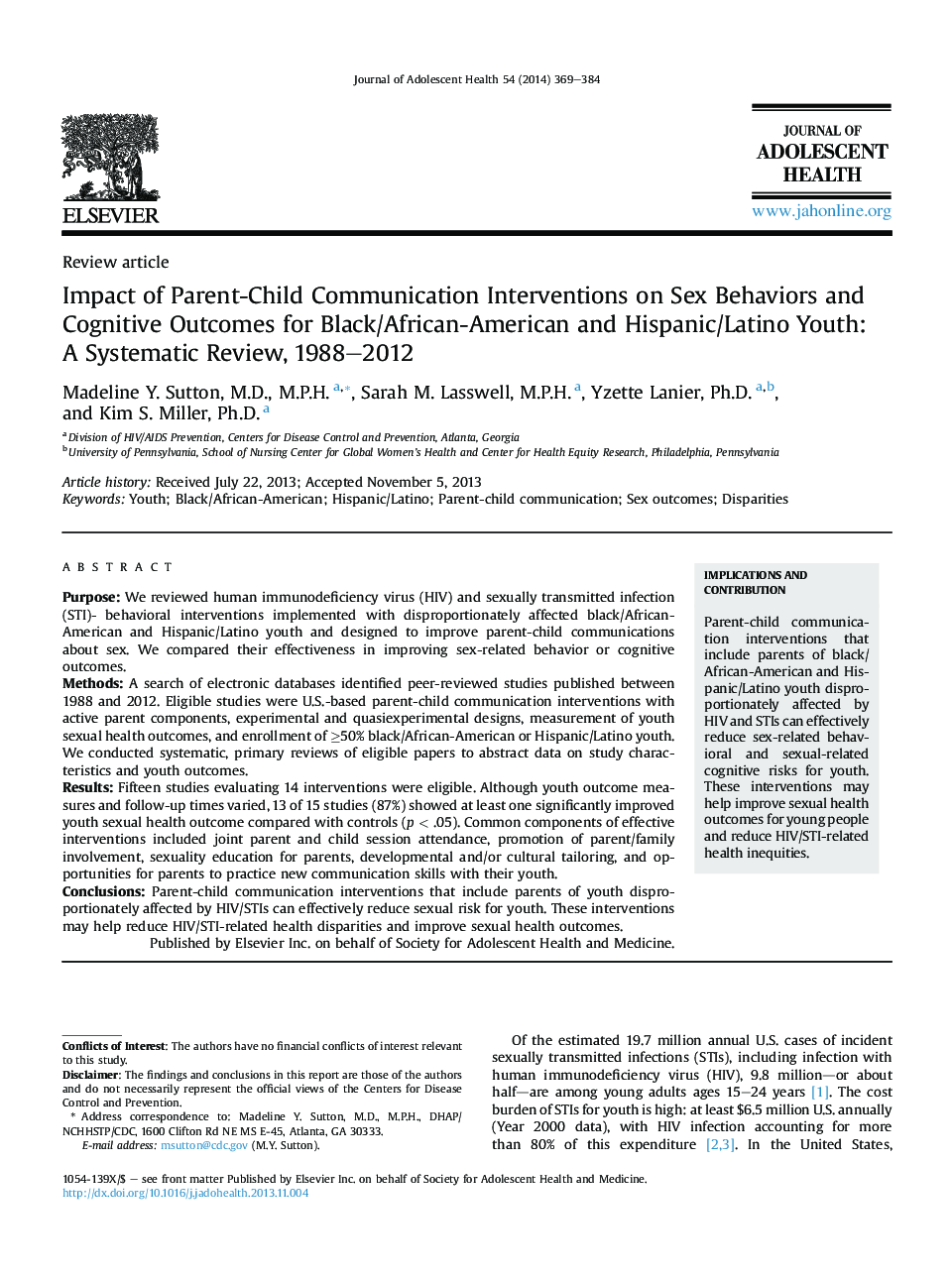| Article ID | Journal | Published Year | Pages | File Type |
|---|---|---|---|---|
| 1078826 | Journal of Adolescent Health | 2014 | 16 Pages |
PurposeWe reviewed human immunodeficiency virus (HIV) and sexually transmitted infection (STI)- behavioral interventions implemented with disproportionately affected black/African-American and Hispanic/Latino youth and designed to improve parent-child communications about sex. We compared their effectiveness in improving sex-related behavior or cognitive outcomes.MethodsA search of electronic databases identified peer-reviewed studies published between 1988 and 2012. Eligible studies were U.S.-based parent-child communication interventions with active parent components, experimental and quasiexperimental designs, measurement of youth sexual health outcomes, and enrollment of ≥50% black/African-American or Hispanic/Latino youth. We conducted systematic, primary reviews of eligible papers to abstract data on study characteristics and youth outcomes.ResultsFifteen studies evaluating 14 interventions were eligible. Although youth outcome measures and follow-up times varied, 13 of 15 studies (87%) showed at least one significantly improved youth sexual health outcome compared with controls (p < .05). Common components of effective interventions included joint parent and child session attendance, promotion of parent/family involvement, sexuality education for parents, developmental and/or cultural tailoring, and opportunities for parents to practice new communication skills with their youth.ConclusionsParent-child communication interventions that include parents of youth disproportionately affected by HIV/STIs can effectively reduce sexual risk for youth. These interventions may help reduce HIV/STI-related health disparities and improve sexual health outcomes.
